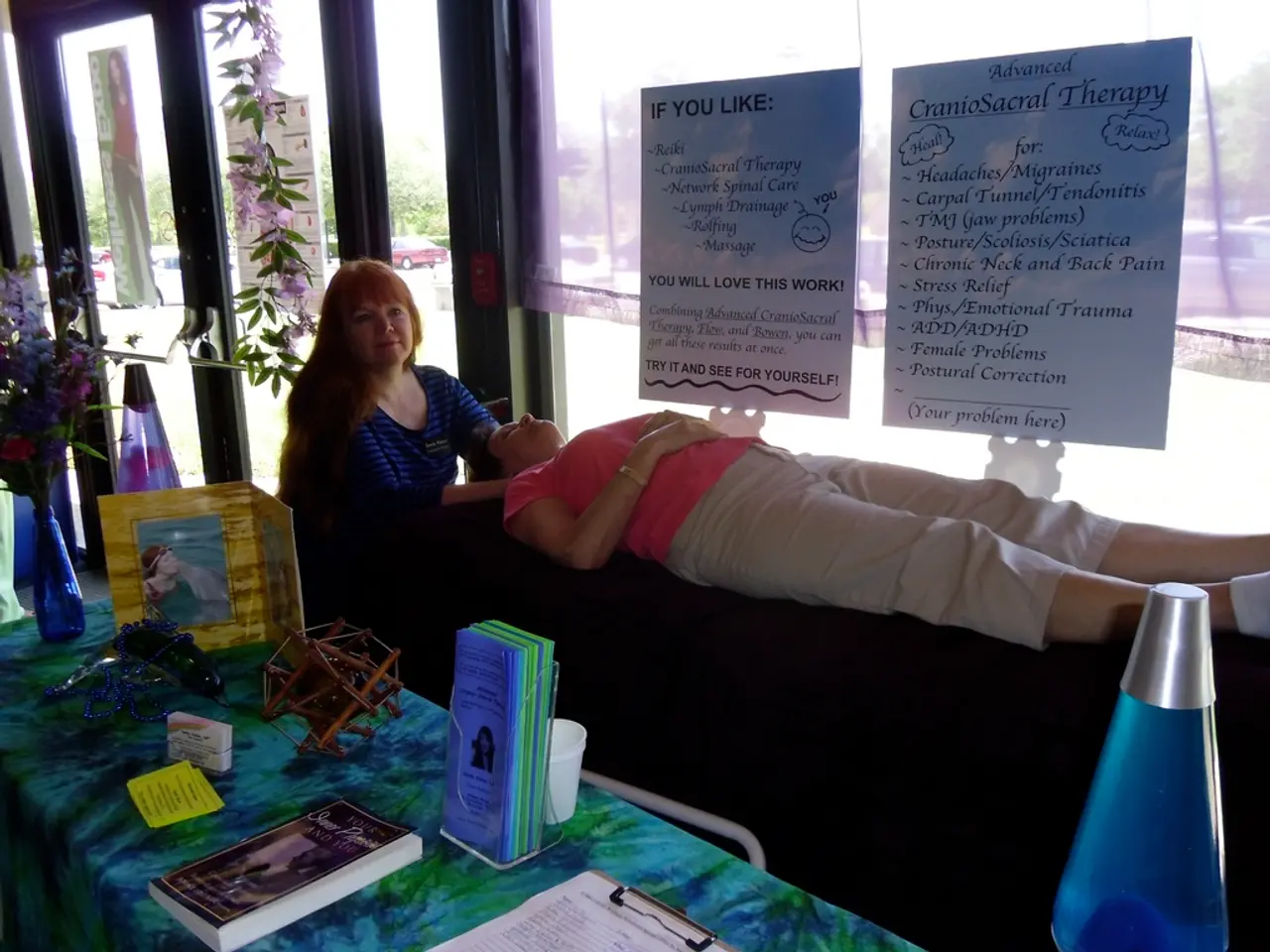Engineered Happiness Remembrances: A Potential Future Approach for Combatting Depression
Unlocking Positive Memories: A Novel Approach to Treating Depression
In a groundbreaking discovery, scientists have found a way to alleviate depression-like symptoms in rats by reactivating positive memories through a technique called optogenetics. This method allows researchers to activate specific brain cells associated with positive experiences, offering a potential new avenue for treating human depression.
Optogenetics, a technology that allows the activation or deactivation of specific brain cells using light pulses, has been instrumental in this discovery. By labelling and later reactivating the neurons that store specific memories (known as engram cells), researchers were able to trigger positive emotional and behavioural responses, counteracting the negative mood and social withdrawal typical of depression in rats.
The reactivation of cells in the dentate gyrus, a region of the hippocampus known to be active during positive experiences, has been found to be crucial in alleviating depression symptoms. This suggests that the problem may not be a lack of positive memories, but the brain's temporary inability to access them.
The implications for human depression treatment are significant. Targeted stimulation of positive memory circuits in the brain could be a novel therapeutic strategy, potentially more precise and with fewer side effects than conventional treatments such as antidepressants or electroconvulsive therapy.
This approach supports the idea that reactivating or enhancing natural positive memories might reset or modulate brain circuits involved in mood regulation. This opens avenues for therapies like deep brain stimulation, transcranial magnetic stimulation (TMS), or pharmacological agents designed to mimic this effect.
Furthermore, understanding the cellular and molecular basis of such memory-based interventions can aid in developing biomarkers for depression recovery and tailoring personalized treatments.
While the direct translation of optogenetic techniques to humans remains limited due to their invasiveness and technological complexity, the foundational insights from rat studies are guiding the development of safer neuromodulation methods aimed at modulating memory and mood circuits to treat depression.
Clinical studies have shown that therapeutic cognitive-behavioral interventions using positive mental imagery or the restructuring of how past experiences are interpreted, might be of help in treating depression. Researchers are also exploring drugs that might increase neuroplasticity-the brain's ability to form new connections-in combination with therapeutic techniques that encourage positive memory retrieval.
Animal models, such as rats, have been invaluable in advancing our understanding of depression's biological underpinnings. The link between personal memories and depression is currently experimentally investigated, and this research offers a deeper understanding of depression's neurological mechanisms.
This discovery suggests a new approach to treating human depression: finding ways to unlock positive memories that remain trapped behind depression's neurological barriers. As research continues, we may soon see a future where depression treatment is not about creating new positive experiences, but about reactivating the ones that have become inaccessible.




